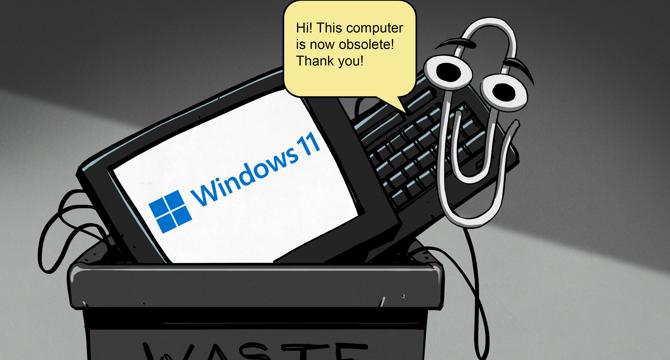Hackaday
1M
9

Image Credit: Hackaday
Forced E-Waste PCs and the Case of Windows 11’s Trusted Platform
- Windows 11 introduced new 'hard' requirements, including the Trusted Platform Module (TPM) and limited CPU support, potentially rendering many PCs obsolete.
- Trusted Computing aims for consistent verified behavior enforced by hardware; TPM in Windows 11 is used for boot validation and storing sensitive data.
- Bypassing Windows 11 requirements is possible but not supported by Microsoft; it poses risks and can complicate system issues.
- Microsoft has pushed for strict adherence to requirements, but loopholes exist for installing Windows 11 on unsupported hardware.
- Enforcing TPM and CPU requirements raises concerns about future updates and system compatibility, potentially leading to user-hostility.
- No clear solution exists to Microsoft's actions; sticking with Windows 10 may be a safer strategy for users not willing to upgrade to Windows 11.
- Considerations for alternative operating systems like Linux or BSD are raised, but challenges exist for users accustomed to the Windows ecosystem.
- The evolving landscape of personal computing reflects a shift towards companies dictating consumer choices rather than responding to user demands.
Read Full Article
Like
For uninterrupted reading, download the app